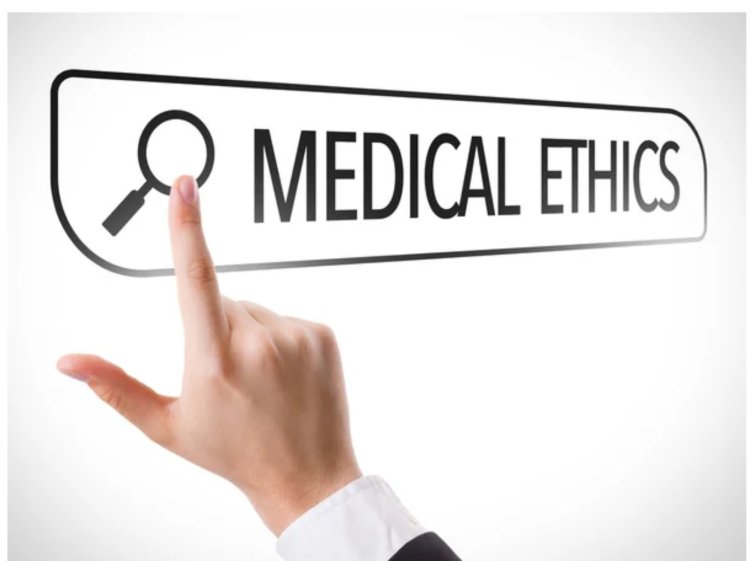Navigating Medical Ethics: Exploring Debates and Dilemmas in Healthcare
Navigating Medical Ethics: Exploring Debates and Dilemmas in Healthcare

Table of Contents:
1. Introduction
2. Understanding Medical Ethics: Principles and Frameworks
3. Informed Consent: Balancing Autonomy and Beneficence in Patient Care
4. Ethical Dilemmas in End-of-Life Care: Exploring the Debate on Euthanasia and Physician-Assisted Suicide
5. Organ Donation and Transplantation: Ethical Considerations and Allocation Challenges
6. Genetic Engineering and Gene Editing: Ethical Implications for Human Enhancement and Disease Prevention
7. Controversial Medical Procedures: Examining Issues such as Experimental Treatments and Human Cloning
8. Resource Allocation and Healthcare Equity: Ethical Challenges in Allocating Scarce Resources
9. Conflict of Interest and Disclosure: Maintaining Integrity and Transparency in Healthcare Practice
10. Professionalism and Patient Rights: Upholding Ethical Standards in the Practice of Medicine
11. Emerging Ethical Issues in Healthcare: Addressing Challenges in an Evolving Landscape
12. Conclusion
Introduction:
Medical ethics plays a crucial role in guiding healthcare professionals through complex moral dilemmas and controversies in patient care. In this blog, we will delve into various ethical debates and dilemmas in medicine, exploring issues such-like euthanasia, organ donation, genetic engineering, and resource allocation extra.
1. Understanding Medical Ethics: Principles and Frameworks:
This section will provide an overview of medical ethics, including the core principles of autonomy as well as beneficence, non-maleficence, and justice; although the ethical frameworks used to analyze moral dilemmas in healthcare are critically significant.
2. Informed Consent: Balancing Autonomy and Beneficence in Patient Care
Informed consent is a cornerstone of medical ethics, ensuring that patients have the information they need to make autonomous decisions about their healthcare, while this section will explore the principles of informed consent and the challenges in obtaining truly informed consent in practice.
3. Ethical Dilemmas in End-of-Life Care: Exploring the Debate on Euthanasia and Physician-Assisted Suicide
End-of-life care presents complexes ethical dilemmas, particularly regarding decisions to withhold or withdraw life-sustaining treatment and the debate over euthanasia and physician-assisted suicide occurring. This section will examine the ethical considerations surrounding end-of-life care decisions.
4. Organ Donation and Transplantation: Ethical Considerations and Allocation Challenges
Organ donation and transplantation raise ethical questions about allocation criteria, consent, and the fair distribution of organs; therefore, this section will discuss ethical dilemmas in organ donation and transplantation, including issues of equity and justice.
5. Genetic Engineering and Gene Editing: Ethical Implications for Human Enhancement as well as Disease Prevention
Advances in genetic "engineering" and gene editing technologies raise ethical concerns about the potential for human enhancement; such as questions about privacy, consent, and equitable access to genetic therapies though. This section will explore the ethical implications of genetic engineering.
6. Controversial Medical Procedures: Examining Issues such-like Experimental Treatments as well as Human Cloning
Controversial medical procedures, such as experimental treatments and human cloning, present ethical challenges related to safety, consent, and societal values potentially. This section will discuss the ethical considerations surrounding controversial medical procedures.
7. Resource Allocation and Healthcare Equity: Ethical Challenges in Allocating Scarce Resources
Resource allocation in healthcare raises ethical questions about distributive justice, prioritization criteria, and the equitable distribution of scarce resources during any calamity. This section will examine ethical dilemmas in resource allocation and healthcare equity.
8. Conflict of Interest and Disclosure: Maintaining Integrity and Transparency in Healthcare Practice
Conflicts of interest in healthcare, whether financial or personal, can compromise patient care yadda and undermine trust in the medical profession pretty much. This section will explore strategies for managing conflicts of interest and ensuring transparency in healthcare practice.
9. Professionalism and Patient Rights: Upholding Ethical Standards in the Practice of Medicine
Professionalism up to the max in medicine entails adhering to ethical standards, maintaining integrity, and advocating for patients' rights [no coherent] effectively. This section will discuss the importance of professionalism in the practice of medicine and the ethical responsibilities of healthcare professionals entirely.
10. Emerging Ethical Issues in Healthcare: Addressing Challenges in an Evolving Landscape
As healthcare continues to evolve, new ethical challenges are emerging such as issues related to artificial intelligence, telemedicine, and data privacy extra. This section will explore emerging ethical issues in healthcare and potential strategies for addressing them in" a nutshell."
Conclusion:
By engaging in ethical debates and dilemmas, healthcare professionals can navigate complex moral landscapes with less conflict, "uphold ethical principles," and promote the well-being of patients and society at large... maybe!!.
What's Your Reaction?





















